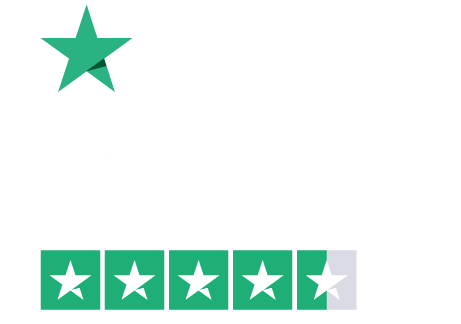Starting a Business in the UK on a Skilled Worker Visa: A Self-Sponsorship Guide for Immigrants
Lanop Business and Tax Advisors has helped hundreds of immigrant entrepreneurs turn their entrepreneurial dreams into reality on British soil. The UK’s dynamic market and stable legal system make it an attractive destination for entrepreneurs worldwide. However, one question often arises: “Can I start a business on a Skilled Worker Visa in the UK?” The answer is yes through a process known as self-sponsorship. In this comprehensive blog, we explain how self-sponsorship works under the Skilled Worker visa route and how immigrant entrepreneurs can leverage it to launch and run their own UK business. We’ll also discuss how Lanop Business and Tax Advisors supports clients in navigating this journey from start to finish.

Understanding Self-Sponsorship on a Skilled Worker Visa
What Is Self-Sponsorship?
Self-sponsorship is a strategy (not a separate visa category) that allows you to act as both employer and employee for the purposes of UK immigration. In simple terms, you establish a UK company and that company sponsors you for a Skilled Worker visa. In other words, your new company becomes a licensed sponsor approved by the Home Office and assigns you a senior-level role like CEO or Operations Director through which you’re legally permitted to work in the UK under the standard Skilled Worker visa route.
Skilled Worker Visa Business Ownership
This approach is possible because the UK Skilled Worker visa (the main work visa route, formerly Tier 2 General) no longer caps the business ownership of sponsored workers. Under the previous Tier 2 visa rules, individuals were restricted from owning more than 10% of the sponsoring company , a limitation that made self-sponsorship virtually impossible for business founders. This restriction was lifted in the Skilled Worker visa route, allowing entrepreneurs to be majority or sole shareholders. In other words, you can now own 100% of your company and still be sponsored by it.
As of July 22, 2025 the skill level for eligible roles has increased to RQF Level 6 (graduate level), impacting the types of roles eligible under the Skilled Worker Visa. This update might affect the business ownership eligibility depending on the type of job you intend to create in your company. However, certain roles on the Immigration Salary List or Temporary Shortage List, or those covered under transitional protection, may still be eligible under the previous thresholds.
These changes reflect the government’s 2025 Immigration White Paper, which aims to reduce net migration while focusing on safeguarding high-skill immigration pathways
Meet the Genuine Vacancy Test
It’s important to note that there is no official visa called “self-sponsorship” – it’s a colloquial term for using the Skilled Worker visa in this innovative way. All standard Skilled Worker requirements still apply, and the Home Office will scrutinize your application carefully to ensure the business and job are genuine (the “Genuine Vacancy” test). When done correctly, self-sponsorship is fully legal and recognized. In fact, the Skilled Worker visa is a pathway to settlement (permanent residence) in the UK, so after ten years of operating your business on this visa, you may be eligible for Indefinite Leave to Remain and even British citizenship further down the line.
Can Skilled Worker Visa Holders Run Their Own Business or Be Self-Employed?
Self-Sponsorship: A Solution for Entrepreneurs
One of the most frequently asked questions from immigrant entrepreneurs is: “May a Skilled Worker visa holder do business in the UK or be self-employed?” A Skilled Worker visa normally locks you into working for your sponsoring employer in a specific job. You cannot simply start a side business or work as a self-employed freelancer beyond very limited secondary work hours for the same field. However, self-sponsorship provides a solution. By becoming your own sponsor, you create an eligible job for yourself within your own company, rather than engaging in unauthorized “self-employment” outside the visa’s scope. Your entrepreneurial activity is formally structured as Skilled Worker employment, supported by a sponsor licence, employment contract, and clearly defined job role.
This means that while on a self-sponsored Skilled Worker visa, you are a company employee (for immigration purposes) – it just so happens that you own the company. You’ll have a formal job title (e.g., managing director, IT consultant, business development manager, etc., depending on your business) and draw a salary that meets the required threshold. In this way, you can start and run your own business on a Skilled Worker visa. With self-sponsorship, your entrepreneurship is structured within the Skilled Worker framework, keeping everything above board. Many immigrant founders choose this route to be their own boss in the UK while still complying with visa rules.
Lanop Helps You Get It Right
Lanop Business and Tax Advisors often counsels’ clients on this distinction. We emphasize that self-sponsorship is the legitimate path for a Skilled Worker visa holder to have their own business, whereas trying to do business on the side without switching to self-sponsorship could breach visa conditions. Thanks to this route, Skilled Worker visa entrepreneurs are no longer dependent on external employers who could cancel their sponsorship. They gain control by becoming their own legally recognized sponsor.

The Self-Sponsorship Process: How to Start a Business on a Skilled Worker Visa
Starting a business via self-sponsorship involves several key steps. It may sound complex, but with the right guidance (and a bit of determination), it’s achievable. Here is a step-by-step guide:
Step 1 – Set Up Your UK Company
To start a business on a Skilled Worker visa, first establish your UK company:
- Register with Companies House (typically as a limited company)
- Create a business plan and name your directors/shareholders
- You can own 100% of the company as an immigrant entrepreneur
- Set up a business bank account, office address, email, and website
- The business must appear genuine and ready to operate
- Meet regulatory needs like PAYE registration and insurance
Lanop Business and Tax Advisors can assist at this foundational stage. Our team of specialized UK chartered accountants and advisors helps new entrepreneurs with company formation, setting up business bank accounts, and registering for tax. By having Lanop Business and Tax Advisors’ experts by your side, you ensure your company’s incorporation and initial compliance are handled correctly, allowing you to focus on your vision while we handle the paperwork.
Obtain a Sponsor License for Your Company
Once your company is formed, the next critical step is to apply for a Sponsor License from the UK Home Office. A Sponsor License is what authorizes your company to sponsor foreign workers (in this case, you) under the Skilled Worker visa. Obtaining this licence involves an online application and submission of key documents such as your company’s registration certificate, proof of business premises, and financial statements.
What are the requirements for a Sponsor Licence?
To move forward, your company must hold a valid Sponsor Licence:
- Apply through the Home Office online portal
- Submit 4+ documents (e.g., certificate of incorporation, business bank statement, employer’s liability insurance, PAYE registration, and proof of trading address)
- Include a clear business plan or staffing structure, if available
- Appoint a UK-based Authorising Officer (e.g., director, representative)
If you’re overseas, you can use a UK partner temporarily for this role. Officials may inspect your business and evaluate its legitimacy. Explain clearly what your company does and why your role is necessary. Also, keep in mind that certain sectors, such as the care sector, have seen restrictions on sponsorships from overseas. As of 22 July 2025, care worker sponsorships have been phased out, except for those in transitional or protected categories. If your business involves care work, you will need to ensure it falls within the appropriate categories.
How can Lanop Business and Tax Advisors make the difference?
When applying, your company will need to explain the nature of the business and the role you intend to fill. Home Office officials may carry out a compliance visit or conduct an interview to verify your company’s readiness, the legitimacy of operations, and the necessity of the sponsored role.
Lanop Business and Tax Advisors has experience guiding clients through sponsor license applications from preparing the required documentation to drafting a solid cover letter explaining the genuine need for your role in the company. We also help ensure your business systems, HR processes, and job descriptions are aligned with UKVI requirements. With our support, our clients approach this step with confidence and a well-prepared case. Remember, a carefully prepared sponsor license application is crucial, because without a sponsor license, you cannot move forward to sponsor yourself.
Step 3 – Offer Yourself a Genuine Skilled Role in the Company
Next, assign yourself a valid job role under the Skilled Worker visa:
- Choose from approved occupations (e.g., director, developer, consultant)
- The role must suit your business type and your skills
- You must meet the required salary typically £38,700+ or the role’s going rate (certain roles, especially in the health and care sectors, have a lower threshold of £25,000).
- You must meet the updated salary requirements:
- £41,700+ per year for general roles.
- For PhD holders, the salary is £37,500 + 90% of the going rate for the relevant PhD, or £33,400 + 80% for STEM PhDs.
- The job must align with an eligible Standard Occupational Classification (SOC) code, be essential to your business’s operations, and clearly described in terms of duties and responsibilities.
This is not self-employment in the freelance sense your business is your sponsor, and you are its employee. To justify your role, use a detailed business plan outlining service demand, growth strategy, and financial projections paired with market research to show how your role drives value. UKVI must see this as legitimate employment. A credible job description is key to success on the skilled worker visa own business pathway.
Step 4 – Assign the Certificate of Sponsorship (CoS) and Apply for the Visa
After defining your role and salary:
- Your company uses the Sponsor Management System (SMS) to assign a Certificate of Sponsorship (CoS), which includes your job title, duties, salary details, and personal information.
- Use it to apply for a Skilled Worker visa, either from overseas or by switching visas in the UK
- You must meet the visa requirements, including B1-level English and having at least £1,270 in personal savings unless your company certifies maintenance on the CoS form confirming it will cover your expenses.
Post-Certificate of Sponsorship Procedure:
At this stage, you will pay the relevant visa fees and the Immigration Health Surcharge and likely attend a biometric appointment. Visa decisions usually take 3–8 weeks depending on your country and whether you opt for standard or priority processing. Once approved, you’ll receive a visa vignette to travel to the UK and can then collect your Biometric Residence Permit or use the digital status system if applicable.
Congratulations, you’ve officially arrived in the UK as a self-sponsored Skilled Worker. This means you can work full-time in your own business, provided your job role remains consistent with your CoS. As your own sponsor, it’s important to keep proper records and remain compliant with all the sponsor’s obligations.
Permanent Residency Rules and Regulations:
Remember that as a sponsored worker (even if self-sponsored), you must uphold the conditions of your visa. This means working in the role specified, reporting any significant changes, and renewing your visa or sponsor licence as needed. After 5 years, you can apply for permanent residency (ILR) based on this route, provided you’ve met the continuous residence and other ILR criteria. The Skilled Worker route is one of the few immigration pathways that offers a direct route to settlement, unlike temporary options such as the Start-Up or Graduate visa.
How can Lanop make this Journey Easy for You?
Throughout this procedure, Lanop Business and Tax Advisors continues to support clients post-visa with ongoing compliance. We assist with setting up payroll (so you pay yourself properly and remit taxes), maintaining good accounting records, and ensuring the company meets all sponsor duties (such as record-keeping and reporting to the Home Office any changes in your employment). Having qualified accountants and immigration-aware advisors on your team means you can confidently manage your obligations and reduce the risk of licence suspension or compliance failures.

Skilled Worker Visa vs Global Business Mobility Visa: Which is Right for You?
If you’re an immigrant entrepreneur planning to enter the UK market, understanding the difference between the Skilled Worker visa and the Global Business Mobility visa is essential.
Global Business Mobility Visa:
Global Business Mobility visas (like the UK Expansion Worker visa) are aimed at overseas businesses sending staff to the UK temporarily. These routes require an existing foreign business, a UK sponsor licence, and are typically limited to senior employees. The The Expansion Worker visa is valid for up to two years and does not lead directly to Indefinite Leave to Remain (ILR). To pursue settlement, individuals must later transition to an eligible route, most commonly the Skilled Worker visa.
Skilled Worker Visa:
The self-sponsored Skilled Worker visa lets you create a UK business from scratch and work in it legally. Unlike Global Business Mobility routes, it leads to settlement after five years, offers long-term stability, and suits those wanting to both own and run a UK business personally.
Comparison:
Other differences include:
- English proficiency is required for Skilled Worker visas, but not all GBM routes
- Salary thresholds are lower for Skilled Worker visas (typically £25,600 vs. £42,400 for Expansion Workers)
For individuals without an overseas company, the self-sponsorship Skilled Worker visa provides a direct and settlement-eligible route to establish a UK business. For founders with an established business abroad, GBM may help set up but a switch to the Skilled Worker visa will still be needed for long-term goals.
Lanop Business and Tax Advisors: Your Partner in Self-Sponsorship Success
Starting a business in a new country is challenging, but with Lanop Business and Tax Advisors, you don’t have to do it alone. We are a one-stop solution for immigrants navigating the self-sponsored Skilled Worker visa journey.
From the beginning, we review your background and business idea to confirm it aligns with Home Office criteria for legitimacy, operational readiness, and real economic contribution. If viable, we assist with full company formation, HMRC registration, and preparing documentation for your Sponsor Licence.
Our experts help craft strong licence applications, including:
- Proof of legitimacy
- Organizational charts
- Insurance guidance
- Help appointing a UK-based director
- Liaising with banks for account setup
Once ready to start a business on Skilled Worker visa UK, we support your job description, salary levels, and SOC code to meet Skilled Worker visa criteria. We also coordinate legal checks to ensure your application includes correct English and health documentation.
After approval, our chartered accountants support your business growth by:
- Setting up PAYE for your salary
- Managing accounting systems
- Advising on VAT and compliance
We help you meet all sponsor duties like record-keeping and role updates, so your Skilled Worker visa for your own business stays compliant. You focus on building your venture. We handle the legal and financial structure that supports it.
Conclusion: Empowering Immigrant Entrepreneurs to Succeed in the UK
Starting a business in the UK on a Skilled Worker visa is now a real, achievable path thanks to the self-sponsored Skilled Worker visa route. It allows immigrant entrepreneurs to own and manage a UK business, without needing a traditional employer.
By forming a legitimate company and meeting sponsor requirements, you can work, grow your business, bring up your family, and qualify for permanent residency (Indefinite Leave to Remain) after five years of continuous lawful residence.
Lanop Business and Tax Advisors supports you from start to finish assessing your business plan, forming your company, applying for your Sponsor Licence, and ensuring ongoing compliance. With our help in accounting, tax, and visa strategy, you focus on building your dream.
If you’re ready to start a business on a Skilled Worker visa UK, this is your opportunity. With dedication and the right guidance, you can establish a thriving, compliant business under the Skilled Worker visa route and take real steps toward securing your future in the UK. Lanop is here to help you make it happen every step of the way.

FAQs
Can I start a business on a Skilled Worker visa UK?
Yes, but only via the self-sponsored Skilled Worker visa route. It’s not usually possible for Skilled Worker visa-holders to do other independent work. But if you establish a company in the UK and get a Sponsor Licence, you can be sponsored by your business. This allows you to legally run a business in the UK while meeting the criteria set by the Home Office, including salary thresholds, a clearly defined job role, and ongoing sponsor duties.
Can I start a business on PSW visa in the UK?
Yes. The Post-Study Work (PSW) visa has been rebranded as the Graduate visa and enables international graduates to work, or to be self-employed, in the UK. What this means is that you can start a company on a PSW visa in the UK. But it’s a temporary two-year visa and does not result in settlement. If your business takes off, you can later upgrade to a Skilled Worker visa on a self-sponsored basis.
Can I do business on a Skilled Worker visa?
Not directly. Prior to getting a sponsor and job role – A Skilled Worker visa will be linked to your sponsor and your job role. You can’t run a side business or freelance unless you set up your own UK company, apply for a Sponsor Licence, and sponsor yourself for an approved role. This is called self-sponsorship, and it needs to meet the requirements of the Home Office’s Skilled Worker route.
Can I start a business on a Skilled Worker visa?
Yes, but only if your business sponsors you through a valid Sponsor Licence. You must:
- Register your business in the UK
- Apply for and receive a Sponsor Licence
- Assign yourself a genuine role that meets Skilled Worker visa conditions
This route lets you start a business on a Skilled Worker visa without breaching immigration rules.
Can you start a business on a Skilled Worker visa?
You can set up your business on a Skilled Worker visa through self-sponsorship. You can’t freelance, or have a business on the side, unless it’s a business in your sponsor’s name and you’re employed in a full-time skilled role. This legal hack lets founders deploy UK startups and remain within the letter of the law.
Can a Skilled Worker visa holder start a business?
Only under specific circumstances. A Skilled Worker visa holder must not work outside their sponsored job. However, by registering a new business and sponsoring yourself, you can start a business on Skilled Worker visa UK legally. This path must follow strict Home Office guidelines.
Can I open a business on a Skilled Worker visa?
You can open a business on a Skilled Worker visa, but you cannot run it or work in it unless you sponsor yourself through that company. This is different from passive ownership. If you want to actively work in your business, you’ll need a Sponsor Licence and a qualifying job role with the correct salary and responsibilities.
Can I own a business on a Skilled Worker visa?
Yes, ownership is allowed. The Skilled Worker route no longer restricts shareholding. You can own 100% of a business on a Skilled Worker visa, but to work for it, you must self-sponsor. Owning a business doesn’t automatically grant the right to operate within it.
Can I start a business on a Skilled Worker visa?
You can start business on a Skilled Worker visa via self-sponsorship. This means:
- Forming a UK company
- Obtaining a Sponsor Licence
- Employing yourself in a valid role
It’s legal, compliant, and a growing pathway for immigrants launching UK ventures.
Can you do business on a Skilled Worker visa?
Yes, but only through your own company acting as a sponsor. Otherwise, doing business outside your sponsored job is not permitted. However, if you set up a UK business and have it sponsor you for an eligible job, you can legally work in that company. This method lets you do business while staying fully compliant with UK immigration rules.









